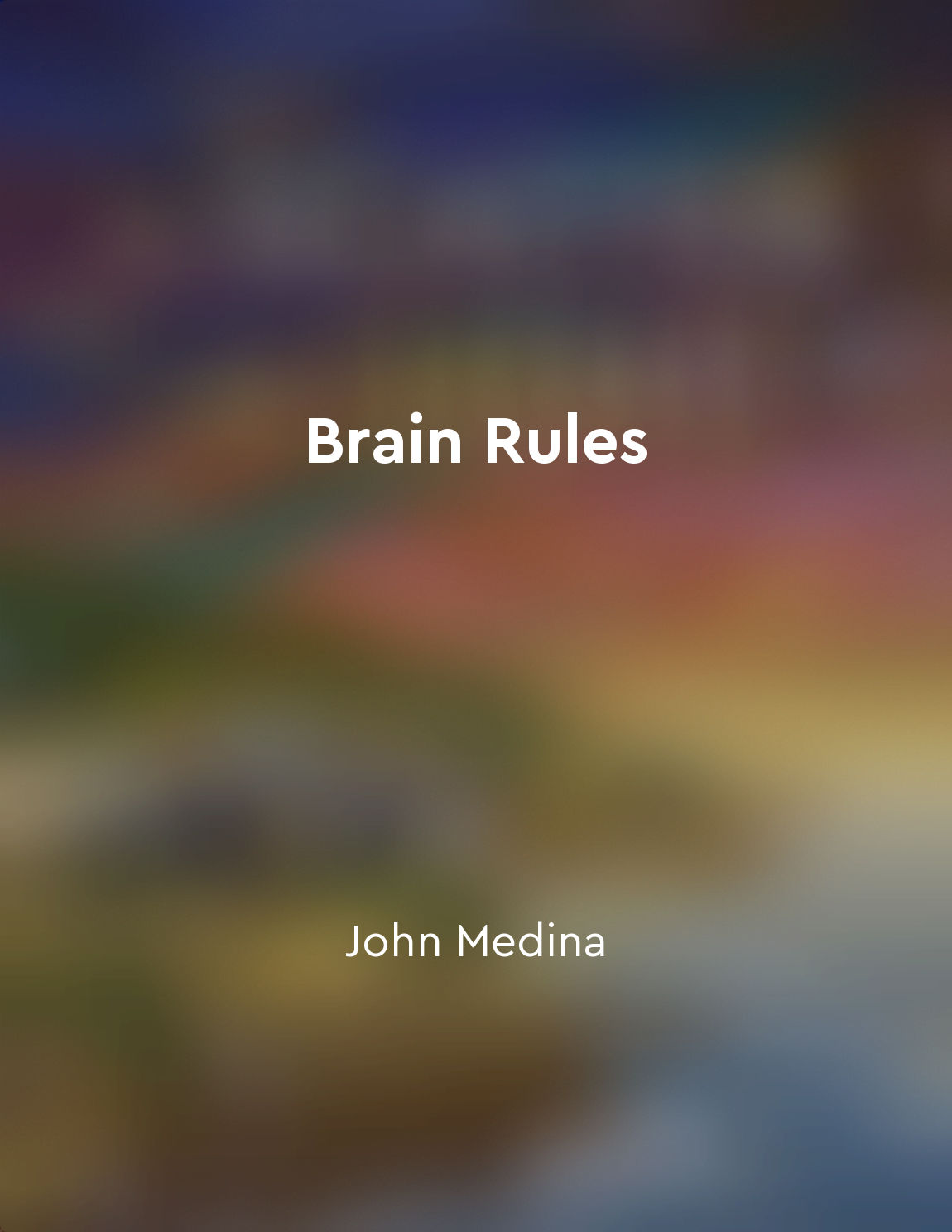Practice shapes the brain's neural connections from "summary" of The Talent Code by Daniel Coyle
In the crucible of practice, the brain undergoes a remarkable transformation. Each repetition, each movement, each attempt creates and refines neural connections. These connections, like delicate threads woven together, become stronger and more efficient with each practice session. In essence, the brain is sculpted by repetition, molded by effort, and refined by practice. As we engage in deliberate practice, our brains adapt and change in response to the demands placed upon them. Through the process of myelination, neural pathways become more insulated and efficient, allowing signals to travel faster and more accurately. This biological process, driven by focused practice, enhances our skills and abilities over time. The concept of neuroplasticity underscores the brain's remarkable capacity to change and adapt in response to experience. Through repetition and focused effort, we can literally reshape our brains, forging new connections and strengthening existing ones. This process of neural sculpting is the key to developing expertise and mastery in any skill or domain. The growth of myelin, the fatty substance that insulates neural pathways, is a critical component of skill acquisition and mastery. Through repeated practice, we not only strengthen existing connections but also create new ones, expanding our neural network and enhancing our capabilities. This process of myelination is the foundation upon which talent and expertise are built. In the end, it is the consistent and deliberate practice that shapes the brain's neural connections, laying the groundwork for skill development and mastery. By understanding and harnessing the power of practice, we can unlock our full potential and achieve greatness in any endeavor we pursue. The path to excellence lies in the relentless pursuit of improvement, driven by the transformative power of practice.Similar Posts

Social interactions influence cognition
Our brains are wired to constantly process information, make decisions, and interact with others. One key aspect of our cogniti...

Mental health should not be ignored
Ignoring mental health is like trying to drive a car without fuel. It may seem like everything is fine at first, but eventually...
Intelligence is a combination of innate ability and environmental factors
The notion that intelligence is a product of both genetic inheritance and environmental influences is a fundamental concept in ...
Creating new experiences can stimulate brain growth
Imagine your brain as a garden filled with flowers. If you keep planting the same flowers year after year, the garden will beco...
Concepts are built on existing schemas
When you learn something new, you don't start from scratch. Instead, you build on what you already know. Your brain is like a p...

Thinking small to go big
The idea of "Thinking small to go big" is a paradox that can be seen across a range of industries. The concept challenges the t...
Stressed brains don't learn the same way
When your brain is stressed, it doesn't work as well. This includes learning. Stress hormones affect memory, attention, and lea...

Strategies for improving resilience and coping skills
In order to better navigate the ups and downs of life, it is crucial to develop strategies that can help improve resilience and...

Sleep well, think well
Getting a good night's sleep can significantly impact your cognitive abilities. When you sleep well, your brain functions at it...
